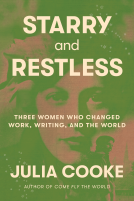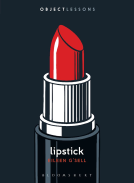
Unleash the Girls
The Untold Story of the Invention of the Sports Bra and How It Changed the World (And Me)
by Lisa Z. Lindahl
This title was previously available on NetGalley and is now archived.
Send NetGalley books directly to your Kindle or Kindle app
1
To read on a Kindle or Kindle app, please add kindle@netgalley.com as an approved email address to receive files in your Amazon account. Click here for step-by-step instructions.
2
Also find your Kindle email address within your Amazon account, and enter it here.
Pub Date Sep 09 2019 | Archive Date Dec 17 2021
Talking about this book? Use #UnleashtheGirls #NetGalley. More hashtag tips!
Description
The 1970s saw women coming into their own, working hard to create new roles at home and in sports, culture, politics, and business. It was also the start of the “fitness revolution.” At this unique intersection of feminism and athleticism, Lisa Lindahl’s game-changing entrepreneurial journey began.
She invented the first sports bra, the “Jogbra,” in 1977. It was the right product at the right time, throwing Lisa into a high-stakes world of business and power—a world for which she was not fully prepared. Unleash the Girls is the improbable story of a young artist with a disability who used her powers of creativity to solve a vexing problem and ended up leveling the playing field for girls and women across the globe—literally, unleashing the girls.
Her invention would become a feminist icon and the company she founded would change an industry. But amid the success, Lisa continued to search for meaning and the true nature of power and beauty. This is the untold story of the invention of the sports bra and how it changed the world for girls and women...and, along the way, changed Lisa, too.
Advance Praise
“… the author’s narrative is as much an inspiring business memoir as it is an absorbing chronicle of a surprisingly significant piece of sports clothing. An engrossing account of the entrepreneur—and the bra—that changed women’s sports.” — Kirkus Reviews
"With cogent reflections on American cultural history and the shifts that laid the groundwork for women’s liberation, Lindahl weaves a narrative that is both intimate and topical....[A]n inspiring narrative about changing the world through fearless innovation." —Publisher's Weekly, BookLife Prize
"The sports bra was and is more than a piece of sporting equipment, it has become a symbol and a vehicle for women and girls to propel themselves forward without inhibition towards the future that they are creating." —Brandi Chastain, American retired soccer player, two-time FIFA Women's World Cup champion, two-time Olympic gold-medalist, coach, and sports broadcaster
Available Editions
| ISBN | 9781647040437 |
| PRICE | $7.99 (USD) |
Links
Average rating from 3 members
Featured Reviews
Lisa Z. Lindahl, Unleash the Girls The Untold Story of the Invention of the Sports Bra and How It Changed the World (And Me), BooksGoSocial, 2019.
Thank you NetGalley for providing me with this uncorrected proof in exchange for an honest review.
Lisa Z. Lindahl’s story is inspiring. Not only because of the success of the business she founded from her invention of the Jogbra but for two other powerful reasons. Lindahl has combined her business story with enlightening personal reflections on her epilepsy which influenced her view of herself, and the way in which others saw her. At the same time, we are drawn into a thoroughly engaging debate about the way in which women may take characteristics traditionally considered female successfully – and at times, unfortunately, unsuccessfully – into business. This debate permeates the relationships Lindahl has with her partner, Hindi Schreiber, and her long-term friend, Polly Smith, as well as colouring her attitudes to developments in the business, and the business world. In part the immediacy of these internal and external debates about the ideals associated with women’s relationships, personal and in business in this instance, reflect the period in which Lindahl began her business.
Lindahl establishes the relationships, lively and personal context in which the Jogbra was initially developed, her understandings of the people with whom she interacted to create her business, and the social context in which she believed she was operating with her eventual co-shareholders – Polly Smith and Hinda Schreiber. Here the complexities of business, legal, and personal relationships are laid out. The difficulties that Lindahl faced, at times because of her epilepsy, at times because of her world view, make intriguing and instructive reading.
At times I found my self pleading with her not to take a particular stance, not to (in my view, and in hers also) be so naïve, to please recognise that sometimes 1970s belief in sisterhood might not work. However, I really must admit that I was wrong. This remarkable woman did make seemingly egregious mistakes, seemingly did not recognise the pitfalls of her tolerance and embracing her disarming personality rather than changing, hardening, becoming ‘more business like’. But what a success she made of herself, her business and her relationships. She maintained her close friendship with Polly Smith, overcoming early difficulties engendered by changes in the business; the initial debacle over shares with Schreiber was resolved to her satisfaction; she accepted the shortcomings of her business relationship with her partner, and worked to maintain a successful business and developing that relationship; she enjoyed much of the time she spent doing the work that she and Schreiber shared on the basis of their suitability for particular tasks.
And, of course, the development of the Jogbra, the story of its invention, the development through fabrics, styles and processes; from selling from Lindahl’s flat, to a fleet of salespeople and trade fairs; from making the bra in a small factory, to expansion to several factories make an enthralling business story. So, too, does the idea behind the Jogbra – initially giving women the opportunity to run comfortably, and progressing to recognising its suitability for a range of sporting activities, to its role as a product to be publicised through top magazines, given a place in history at the Smithsonian Museum – and eventually the product that became so popular that it could be sold profitably after thirteen years of ‘thriving economic success’.
Lisa Z. Lindahl refers to the challenge of writing her book being deciding about how to approach her material – whether to concentrate on the business, her personal life or give attention to a broader perspective on personal growth. She chose wisely in making each facet of her life an important part of the narrative. As a consequence, she has written a moving, thoughtful and sometime comical story of a successful business enterprise, a journey that is both personal and relevant to other women and our ideas of sisterhood and assurance that this does not mean self-abnegation. This is an excellent read, thank you Lisa Lindahl.
"I just find it so fascinating, and truly ironic, that the sports bra - a true gift to girls and omen - was to a great degree born out of such a contentious relationship between two women. It was powerful fuel for my own inner search and growth."
That quotation sums up the book, really. It's a blow-by-blow account of Lisa's, plus colleagues Polly and Hinda's invention and development of the sports bra in the 1970s and the subsequent ins and outs of the company they formed to take it to market in the 70s and 80s. Very much of their time, Lisa, at least, concentrates on being woman-centric and personal growth, where Hinda is more confrontational and competitive. This leads to what sounds like a horrible environment for both them and their eventual employees, with disagreements and shouting and an eventual grudging acceptance of their different ways of doing things (Polly gets bought out early on but is still a presence in Lisa's life), which then fractures again when they sell the company.
It's interesting on the growth of "jogging" in the US and the mechanics of setting up manufacturing and sales, but there are also a lot of musings on the nature of power and women's personal growth. Lisa has lived with epilepsy her whole life and it's fascinating to read her insights into how that has affected both her personal life and her business practices. We do get an update on what happened next, and it's an interesting story to read. There are reproductions of adverts and business documentation in the middle of the book which add to it, and are now archived in the Smithsonian!
Readers who liked this book also liked:
Marie Bostwick
Historical Fiction, Literary Fiction, Women's Fiction
Ilana Masad, Stevie K. Siebert Desjarlais
Entertainment & Pop Culture, Nonfiction (Adult)


















